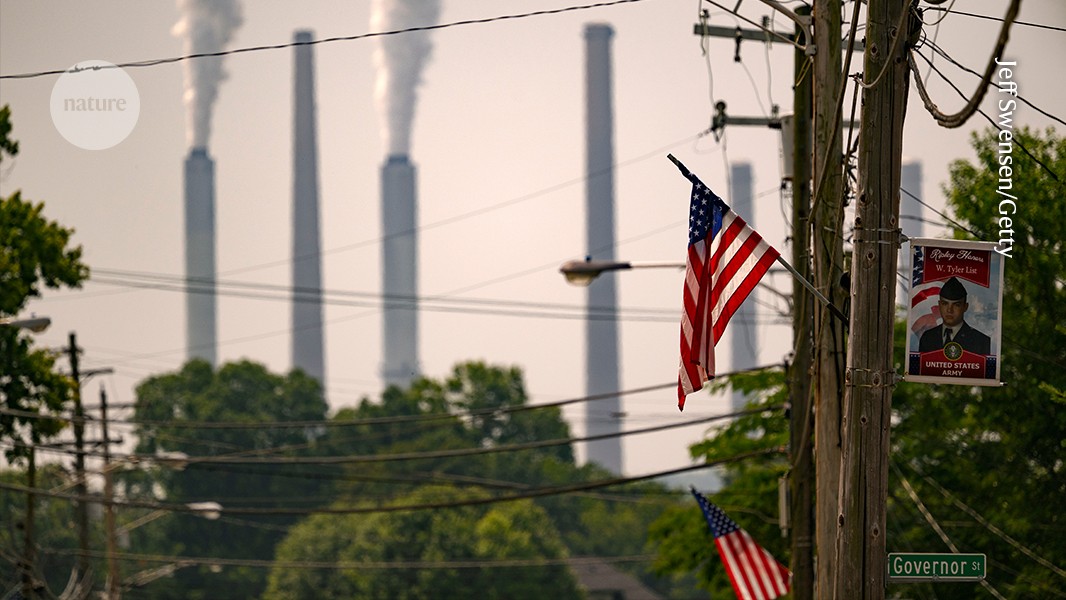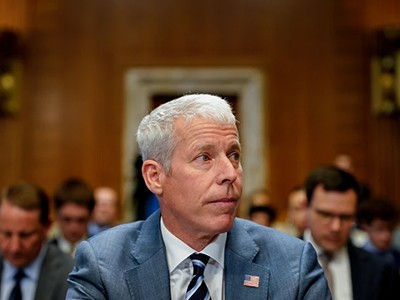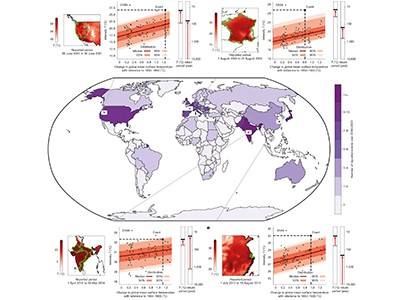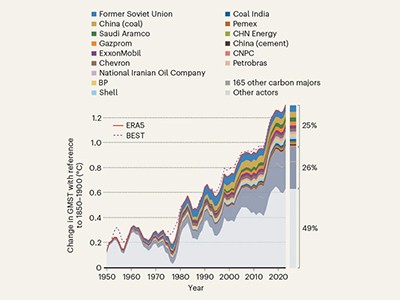You have full access to this article via your institution.
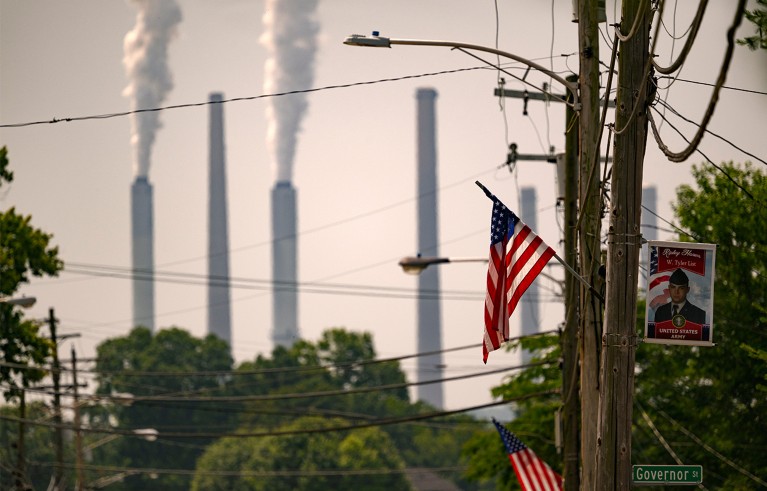
The Trump administration has announced plans to repeal limits on greenhouse-gas emissions from fossil-fuel power plants.Credit: Jeff Swensen/Getty
In July, the administration of US President Donald Trump announced formally that the US Environmental Protection Agency (EPA) would seek to overturn its 2009 ruling that greenhouse-gas emissions endanger public health and welfare. The move would negate the legal foundation for many climate regulations. The agency in charge of protecting the nation’s environmental and public health is now arguing that climate researchers have overstated the perils of global warming.
Outrage over Trump team’s climate report spurs researchers to fight back
The EPA’s proposal defies the established findings of leading climate researchers and laboratories, not least those of the United States. That the world’s largest greenhouse-gas emitter, as measured by cumulative emissions over time, is abandoning its nascent moves towards decarbonization — and doing so on such spurious, unscientific grounds — should be ringing alarm bells everywhere.
It has been 18 years since the US Supreme Court ruled that greenhouse gases qualify as air pollutants. The court then ordered the EPA to determine whether emissions endanger the public — and should therefore be regulated. Two years later, the EPA issued its ‘endangerment finding’, that greenhouse gases such as carbon dioxide threaten public health and welfare, citing the comprehensive assessment reports from the Intergovernmental Panel on Climate Change (IPCC) and other evidence. The administration of then-president Barack Obama used this ruling as a basis to begin issuing regulations to curb emissions from cars, power plants and more.
In support of the EPA’s deregulatory proposal, the Department of Energy (DOE) has published an unprecedented critique of mainstream climate science (see go.nature.com/4mtwsm5). If implemented, the proposal would be the first time that a globally respected, science-based regulatory agency has so thoroughly departed from the scientific consensus on global warming, represented by the work of thousands of scientists under the auspices of the IPCC over several decades. That consensus is, for good reason, the basis of both international law on climate change and hundreds of national laws and concurrent actions to stop anthropogenic climate change.
Taking just one of many examples, the DOE report critiques IPCC findings describing how human-generated emissions are leading to extreme weather. This is despite the fact that, year after year, climate-attribution science is getting more accurate.
Read the paper: Systematic attribution of heatwaves to the emissions of carbon majors
For example, in this week’s Nature, researchers suggest that it is now possible to draw a causal link between the emissions associated with carbon-intensive companies, such as private and state-owned fossil-fuel firms, and specific extreme weather events, notably heatwaves (Y. Quilcaille et al. Nature 645, 392–398; 2025). Yann Quilcaille, a climate scientist at the Swiss Federal Institute of Technology in Zurich, and his colleagues analysed the influence of global warming on 213 heatwaves recorded between 2000 and 2023. They allotted responsibility for each heatwave among 180 producers of fossil fuels and cement, collectively accounting for around 60% of global anthropogenic carbon emissions between 1850 and 2023.
This study builds on more than two decades of research on climate change’s contribution to extreme weather events. The results could bolster lawsuits that seek to hold companies accountable for climate damages. The framework that has been developed can be used in international negotiations to assess the responsibility of countries in compensating climate-related loss and damage. It could also be used to answer questions about the damages wrought by individual industries, such as the automobile and power sectors that the EPA focused on in its latest regulatory proposal.
Heatwaves linked to emissions of individual fossil-fuel and cement producers
There is much to consider as politicians, judges, juries and the general public try to determine who is to blame for the climate impacts that the world is already seeing. Does it make sense to hold fossil-fuel producers responsible when it is their customers who are driving petrol-powered vehicles, lighting stoves and burning coal in power plants? Does it matter that government policies not only enable but often subsidize fossil-fuel use? Or that some companies promoted climate denial as part of an effort to undermine climate policies? For the last question, many argue that the answer is ‘yes’, and that is the case made by various ongoing lawsuits seeking to hold US fossil-fuel companies accountable — as with tobacco and opioids, firms will be on the hook for damages.
Science alone cannot answer these questions. But it is the best tool we have to think about the problems raised by climate change and how to solve them. To deny this science is to deny that these impacts exist, which is courting disaster. It will help no one in the long run — especially US businesses and consumers.
The stakes could not be higher: the United States is the currently second-largest emitter of greenhouse gases, behind China. What the United States does on climate will affect billions of people. This is the threat posed by the Trump administration, which is promoting a dangerous fossil-fuel agenda, rolling back investments in clean-energy technologies and seeking to block the EPA’s authority to regulate greenhouse-gas emissions, both now and into the future. Leading climate scientists have crafted a formal response (see go.nature.com/41j3fsa), arguing that the DOE’s report makes a mockery of science by misrepresenting, cherry-picking or outright ignoring evidence compiled by scientists around the world over the past several decades. Ultimately the United States, and the world, will emerge the poorer for it.


